mieyewear
Sourcing
Earth-Friendly Eyewear Options
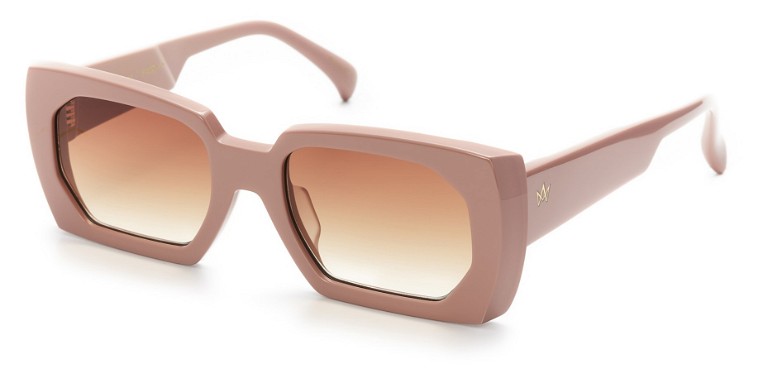
AM Eyewear
From its early days, AM Eyewear always has had the ethos of quality over quantity and has held true to its values of sustainability and recycling.
Handcrafted using a combination of premium materials with a focus on sustainability, such as bio-based Italian acetates; AM Eyewear’s sunglasses are fitted with co-branded sustainably produced bio-based Nylon Carl ZEISS lenses with Gold ET AR back coating.
One of the best ways to practise sustainability is to give the product the longest life possible, so AM Eyewear buys back its pre-owned frames from consumers, to be reworked and donated to underprivileged communities.
Visit: ameyewear.com
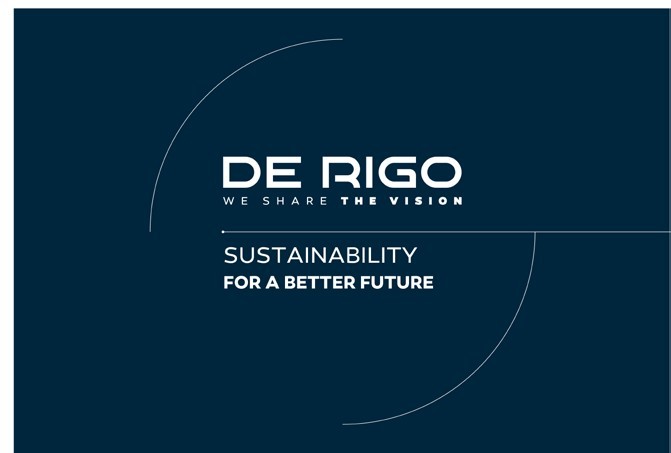
De Rigo
Sustainability has always influenced the way De Rigo operates, and the company has made the following commitments to demonstrate its eco credentials:
Materials: Introducing new eco-materials, and recycled and biodegradable packaging,
Environment: Optimising waste and scrap management during the production process and at the company level,
Energy: Improving power efficiency to reduce energy consumption and adding solar energy, and Emissions: Reducing CO₂ emissions in transportation and during manufacture processes.
De Rigo was the winner of the Green Star – Sustainable Companies 2022 study.
Contact: De Rigo (AUS) 02 9428 1500
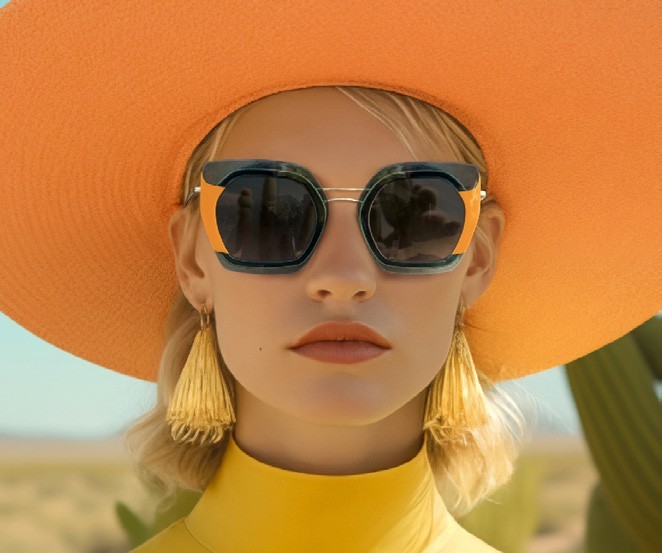
Woodys Eyewear
Committed to finding the smartest and most sustainable solutions to create products that are as respectful as possible to our planet, Woodys Eyewear aims to become a driver of positive change. Woodys endeavours to craft eyewear that embraces environmentallyfriendly principles throughout its design, manufacturing, and end-of-life stages.
Currently 40% of the Woodys’ collection consists of bio acetate, using natural pigments free of toxic chemicals and plastics.
Woodys reduces single-use plastics and replaces essential protectors with 100% biodegradable materials. Woodys cases are made from 70% recycled materials.
Contact: Frames Etcetera (AUS) 1800 708 771
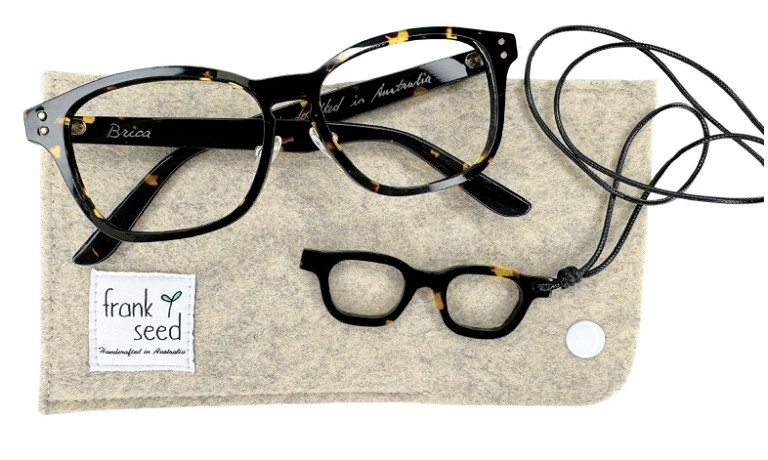
Frank Seed
Frank Seed embodies the seamless blend of sustainability and style. Frames are handcrafted from cellulose acetate, a biomass material derived from systematically cultivated cotton seeds, wool, and wood pulp, and complemented with German metal hinges for durability and eco-consciousness.
As all frames are fully handcrafted, customers have the flexibility to personalise their own eyewear, from reusing lenses to make a new frame or customising temple colours/shapes for a new look with the same frame front.
Moreover, leftover acetates are repurposed into eyewear-shaped necklaces, adding an eco-chic touch to your wardrobe. Pictured is Brica in a shiny tortoiseshell.
Contact: Green Infinity Eyewear (AUS) 0433 737 328
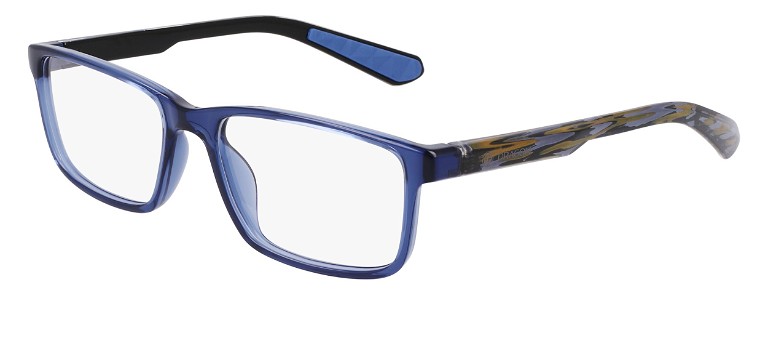
Marchon
The Eyes on Tomorrow program by Marchon is a long-term, global program that commits the company to sustainability in frame, lens, and packaging solutions; supply chain activities; and workforces.
Dedicated to leaving a positive eco-footprint, Marchon continues to leverage more sustainable materials and processes in the production of its premium eyewear whenever possible and available. Brands including Nike, Longchamp, Skaga, Dragon (pictured), and Nautica have expand their sustainable offerings with a variety of sun and optical styles for adults and children.
Many of the frames are designed utilising sustainable materials, such as plant-based resin, upcycled plastic, recycled stainless steel, and Eastman’s Acetate Renew, Tritan Renew, and Tenite Renew.
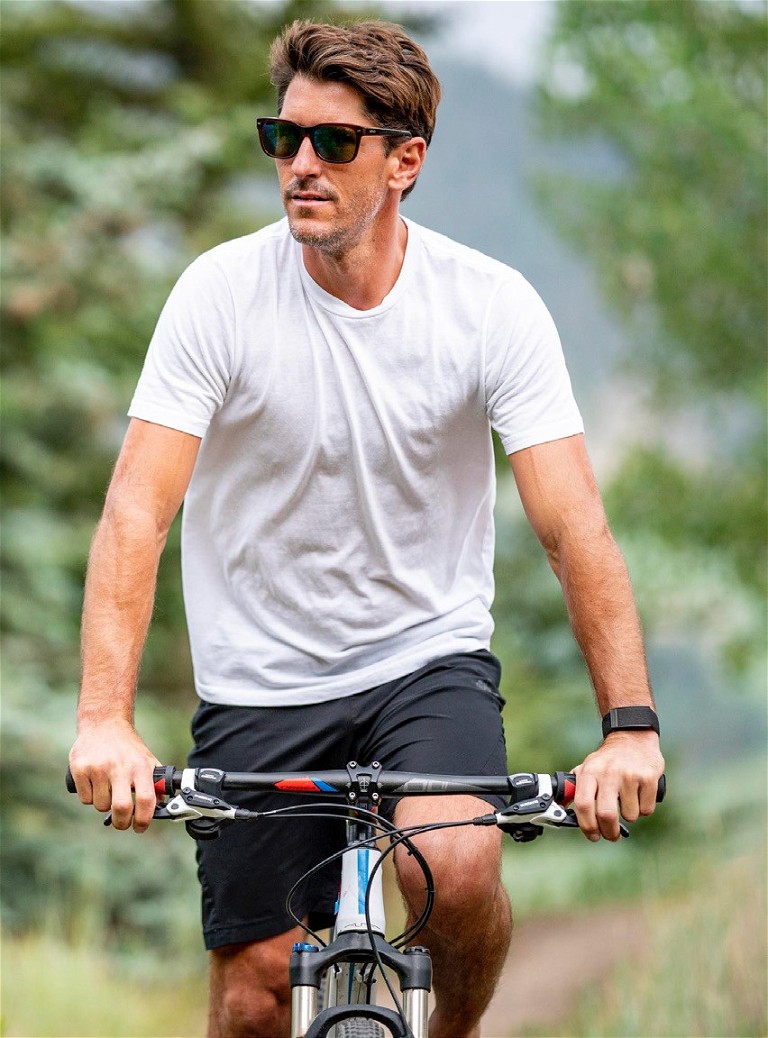
Revo
Revo’s bio acetate frames are crafted from completely organic, plant-based materials. These frames are not only stylish but also environmentally sustainable. Made with a commitment to eco-conscious practices, they are 100% biodegradable, ensuring minimal impact on the planet. Embracing the principles of sustainability, Revo’s bio acetate frames offer a compelling choice for those who prioritise both fashion and the environment.
Visit: acmemerch.com.au
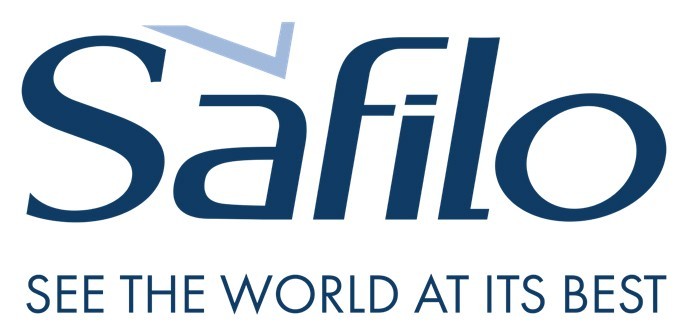
Safilo
Safilo’s DNA principle of “looking ahead” also guides the company’s initiatives on sustainability. Safilo’s life cycle assessment (LCA) maps the environmental impact of all operations from material sourcing and manufacturing to end-product.
Such initiatives include adopting the use of renewable electric energy across its global facilities, with Safilo Australia being 100% energy neutral, as well as the use of recycled and bio-based materials for frames, lenses, and packaging across the portfolio. Safilo was the first player to adopt Econyl and all Eastman Renew materials in the mass production of eyewear, showcasing the company’s commitment to innovation in sustainability.
Contact: Safilo (AUS)1800 252 016
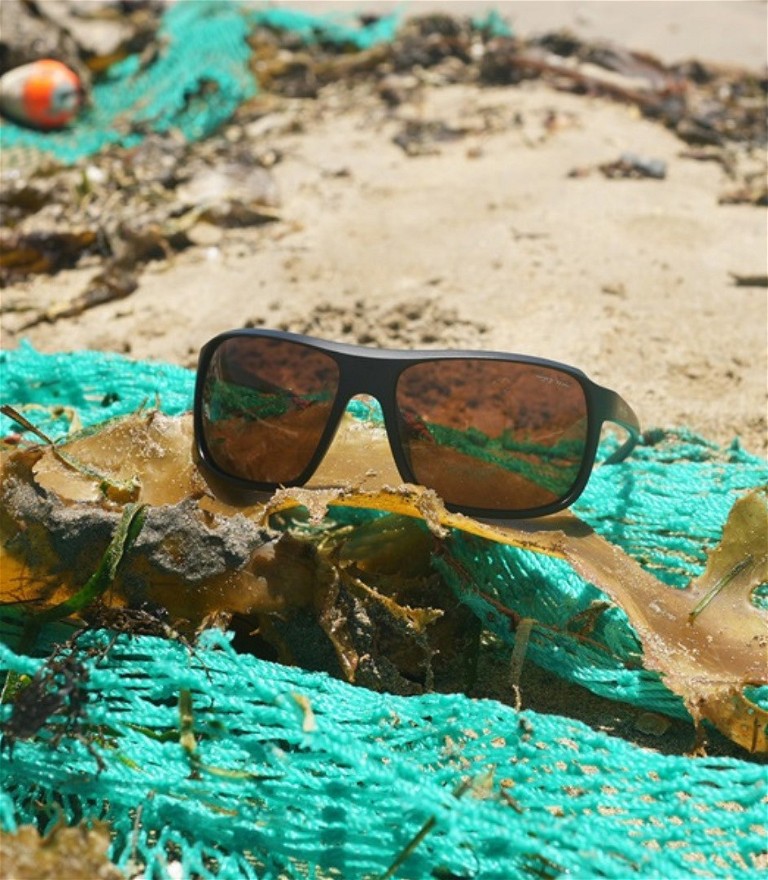
Ugly Fish
Millions of discarded fishing nets are clogging up our oceans, posing a threat to marine wildlife through entanglement or suffocation.
To help reduce plastic pollution in our waterways, Ugly Fish has launched the Green Series with five RXable frame options made from 100% recycled fishing net. These sustainable sunglasses are tough, lightweight, and built for active lifestyles.
Ugly Fish frame and lens packages are available to order through lab partners Rodenstock, Essilor, Hoya, and OSA.
Contact: Piranha Eyewear (AUS) 1300 369 574
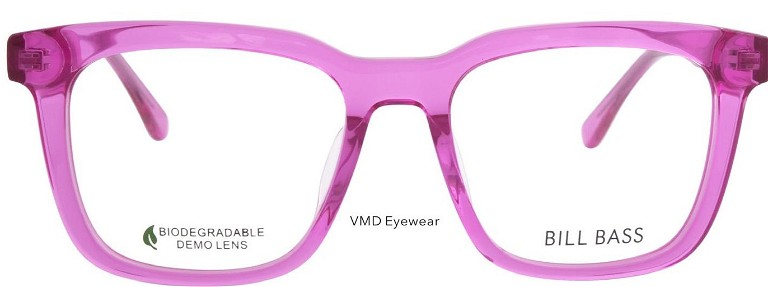
VMD Eyewear
VMD Eyewear has a greener vision for the optical industry. Recognising the environmental impact of conventional practices, VMD Eyewear has integrated biodegradable and compostable demo lenses, crafted from recycled materials, into all of its house brand optical frames.
This initiative directly addresses the pervasive issue of lens waste at the point of sale, significantly reducing the company’s ecological footprint. The commitment extends to packaging solutions – all zip lock bags, foam inserts, and plastic sleeves are biodegradable, ensuring every aspect of the product journey champions sustainability. Proudly leading by example, VMD Eyewear is dedicated to crafting a clearer, cleaner future for our planet.
Contact: VMD Eyewear (AUS) 1800 449 845 or (NZ) 09 525 6601
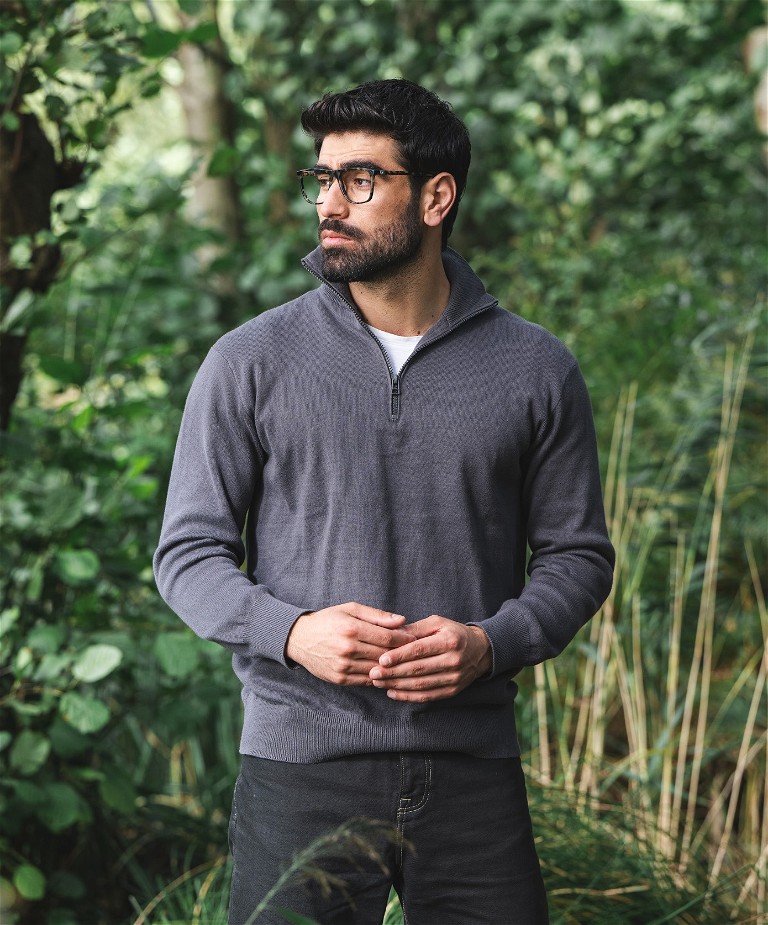
Coral Eyewear
Coral Eyewear offers a scalable solution to market trends of increased corrective eyewear prescriptions and consumers considering a sustainable approach by providing high-quality glasses created with recycled plastic and other innovative materials.
Coral’s Earth Collection frames are made from 40% recycled plastic, which consists of waste plastic cups and bottle caps.
The other 60% is cellulose acetate, a bio acetate which is made without crude oil, from wheat or barley.
Coral Eyewear is also packaged sustainably, with each glasses case made from recycled craft paper or recycled fishing nets.
Contact: OphthalmoPro (AUS) 1300 578 288
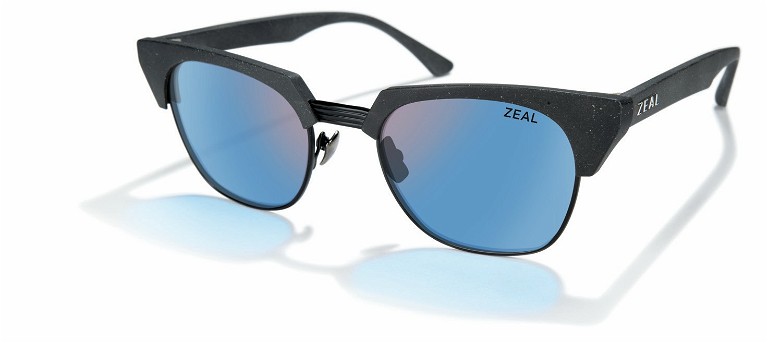
Zeal Optics
Zeal Optics’ mission is to create premium polarised sunglasses that enhance your patients’ time outdoors while working to protect the world around us. Zeal uses renewable and recycled materials in the manufacturing of all its sunglasses. The Z-Resin and Z-Lite frames contain a minimum of 45% plant-based bio resin while the See Grass frames (pictured) include a minimum of 10% recycled plastics and 30% agricultural waste grasses. Zeal Optics is also a proud member of the 1% for the Planet family and donates 1% of gross sales to environmentally focussed nonprofits in Australia and around the globe.
Contact: Zeal Optics (AUS) 1800 010 244
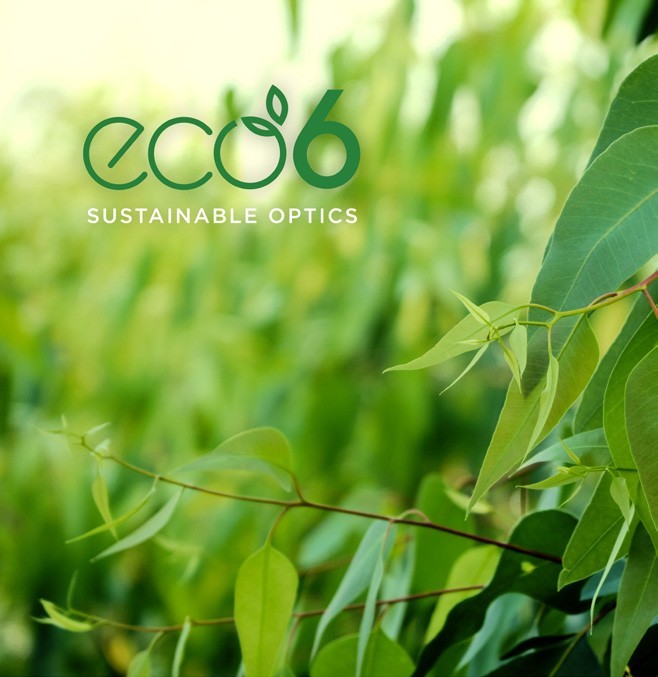
ECO6
The ECO6 lens is revolutionising the eyewear industry by swapping out traditional petrochemicals for sustainable biomass plantbased materials. This innovative lens is both sustainable and eco-friendly. It is designed to reduce greenhouse gas emissions by up to 14% compared with conventional petroleumbased products.
Compared with previous materials with inconsistent tinting issues, ECO6 boasts unwavering tinting capabilities. It can absorb up to 85% tint density in any colour, thanks to its cutting-edge substrate technology. It also maintains tint integrity and is less likely to fade over time as the biomass material is consistent in colour and density.
ECO6 is comprised of a 1.6 index material and available in all grind products, a variety colours and densities. It is lightweight and suitable for rimless and nylon/ inline fitting. It is the only lens material certified and recognised as a biomass product by the Japan Organics Recycling Association (JORA) and the United States Department of Agriculture (USDA).
Contact: CR Surfacing Laboratories (AUS) 1800 334 867
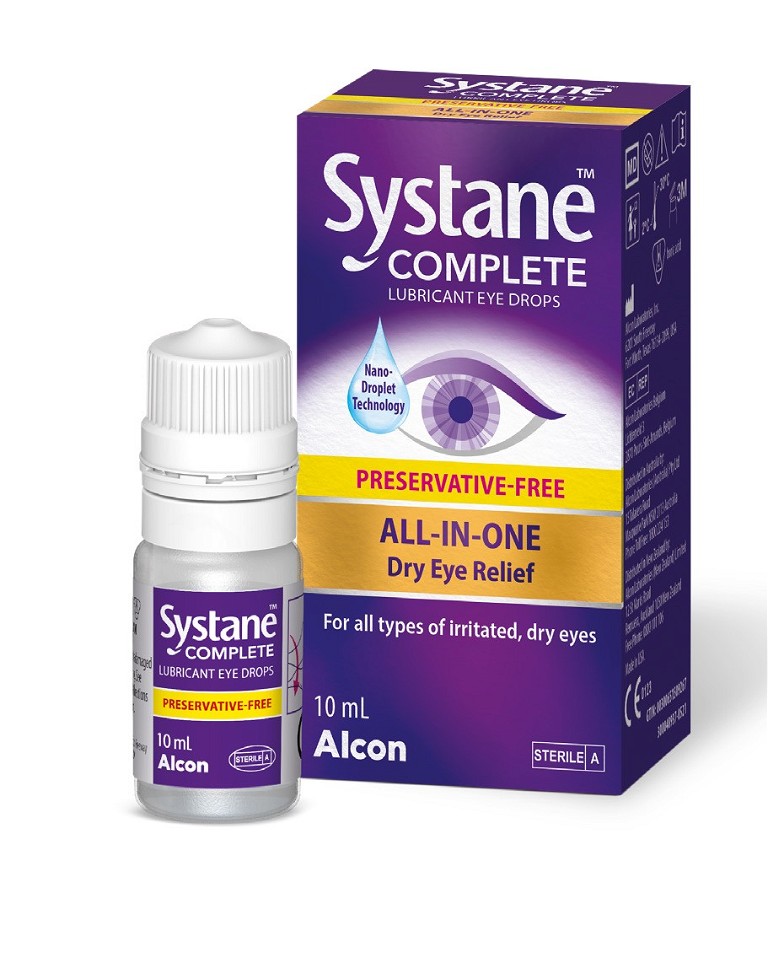
Alcon
Alcon is working to reduce the environmental impact of its products while balancing its responsibility as a medical device company to provide safe products.
Since many of its products must be single use to protect patient safety, Alcon focusses its efforts on aspects of the production process and material use such as reducing energy use, packaging, and post-consumer waste as well as increasing the number of recycled materials incorporated into its products.
By 2030, Alcon will become carbon neutral across global operations (Scope 1 and Scope 2 emissions) and will divert 100% of nonhazardous waste generated at manufacturing sites and distribution centres from landfill.
To offset the plastic used in Total, Precision, and Systane brands, and also UltraSert and AutonoMe systems in the surgical division, Alcon has partnered with Plastic Bank to collect the same amount of ocean-bound plastic in vulnerable coastal communities.
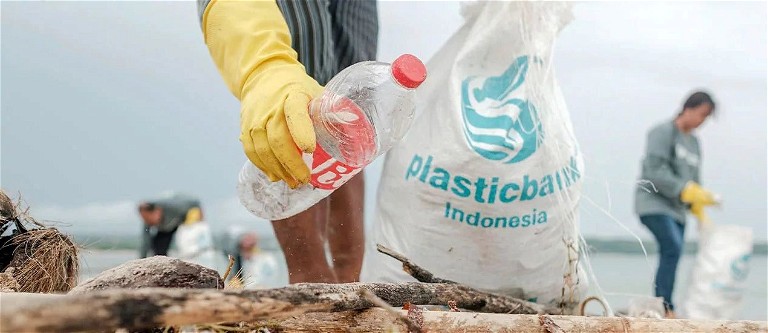
CooperVision
The CooperVision range of contact lenses distributed in Australia and New Zealand is plastic neutral.1,2
This initiative is made possible through a global partnership with Plastic Bank, a social enterprise that builds ethical recycling ecosystems in coastal communities.
For every box of CooperVision contact lenses distributed in ANZ, CooperVision purchases credits that fund the collection and recycling of ocean-bound plastic, that is equal to the weight of the plastic used in its one-day contact lenses, the blister and the outer carton packaging.2
Contact: CooperVision Account Manager
References
1. Range defined as all one day, two-weekly and monthly replacement contact lens brands and segments: sphere, toric, and multifocal sold and distributed by CooperVision in Australia and New Zealand.
2. Plastic neutrality is established by purchasing credits from Plastic Bank. A credit represents the collection and conversion of 1 kg of plastic that may reach or be destined for waterways. CooperVision purchases credits equal to the weight of plastic in one-day, two-weekly and monthly replacement contact lens orders in a specified time period. Contact lens plastic is determined by the weight of plastic in the blister, the lens, and the secondary (outer carton) package, including laminates, adhesives, and auxiliary inputs (e.g. ink).